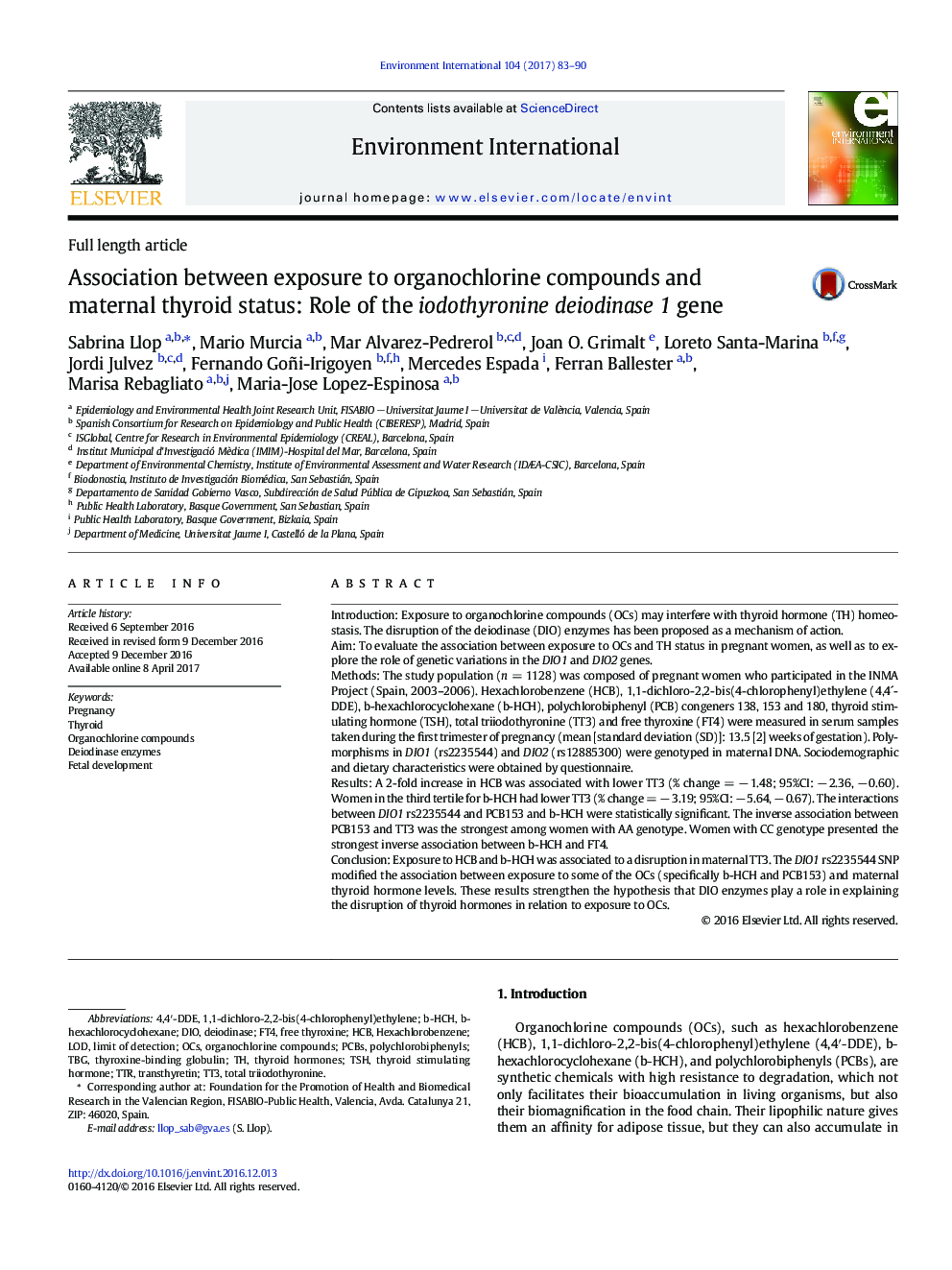| Article ID | Journal | Published Year | Pages | File Type |
|---|---|---|---|---|
| 5748353 | Environment International | 2017 | 8 Pages |
â¢Exposure to HCB and b-HCH was significantly associated with lower TT3 during pregnancy.â¢The magnitude of the association between exposure to some OCs and THs depended on the genotype for the DIO1 rs2235544 SNP.â¢The DIO2 rs12885300 SNP did not modify the association between any of the OCs and thyroid hormones.
Introduction: Exposure to organochlorine compounds (OCs) may interfere with thyroid hormone (TH) homeostasis. The disruption of the deiodinase (DIO) enzymes has been proposed as a mechanism of action.Aim: To evaluate the association between exposure to OCs and TH status in pregnant women, as well as to explore the role of genetic variations in the DIO1 and DIO2 genes.Methods: The study population (n = 1128) was composed of pregnant women who participated in the INMA Project (Spain, 2003-2006). Hexachlorobenzene (HCB), 1,1-dichloro-2,2-bis(4-chlorophenyl)ethylene (4,4´-DDE), b-hexachlorocyclohexane (b-HCH), polychlorobiphenyl (PCB) congeners 138, 153 and 180, thyroid stimulating hormone (TSH), total triiodothyronine (TT3) and free thyroxine (FT4) were measured in serum samples taken during the first trimester of pregnancy (mean [standard deviation (SD)]: 13.5 [2] weeks of gestation). Polymorphisms in DIO1 (rs2235544) and DIO2 (rs12885300) were genotyped in maternal DNA. Sociodemographic and dietary characteristics were obtained by questionnaire.Results: A 2-fold increase in HCB was associated with lower TT3 (% change = â 1.48; 95%CI: â 2.36, â 0.60). Women in the third tertile for b-HCH had lower TT3 (% change = â 3.19; 95%CI: â 5.64, â 0.67). The interactions between DIO1 rs2235544 and PCB153 and b-HCH were statistically significant. The inverse association between PCB153 and TT3 was the strongest among women with AA genotype. Women with CC genotype presented the strongest inverse association between b-HCH and FT4.Conclusion: Exposure to HCB and b-HCH was associated to a disruption in maternal TT3. The DIO1 rs2235544 SNP modified the association between exposure to some of the OCs (specifically b-HCH and PCB153) and maternal thyroid hormone levels. These results strengthen the hypothesis that DIO enzymes play a role in explaining the disruption of thyroid hormones in relation to exposure to OCs.
